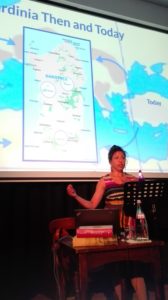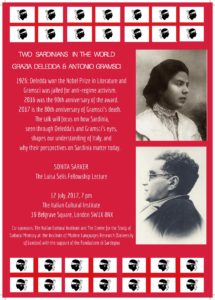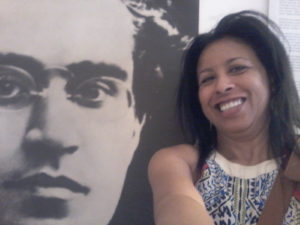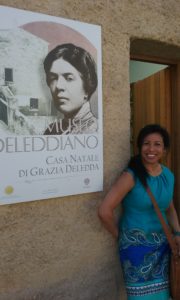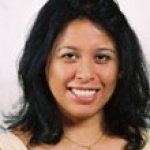Living Languages
The blog for the Institute of Modern Languages Research
Voyage 4: From Port to Port
Sonita Sarkar holds the Luis Selis Visiting Fellowship at the IMLR, 2017. Here, she discusses the research she is undertaking as part of her fellowship:
By all accounts, the culminating event of my fellowship, the talk “Two Sardinians in the World: Grazia Deledda and Antonio Gramsci” that took place on 12 July 2017 was a success. The rather large main salon at the Italian Institute of Culture in Belgrave Square was standing room only and from my vantage point on the stage, I could see that everyone generously offered their full attention throughout. I took the applause to be for Deledda and Gramsci’s inspiring words. Many, and many different, people came up and spoke to me afterwards. The light Sardinian dinner (food, wine, and dessert) was such a pleasant and lovely coda to the evening.
This last blog post for the fellowship returns to the question I raised at the end of the previous one. Is presentation of minoritised subjects inevitably or invariably advocacy? I had written about positionality, about nearness and distance, and about launching a conversation. The first two would appear, in retrospect, to be about my being (identity, existence) and the penultimate, along with this last post, about doing (the implications of my actions). Being and doing are, of course, connected.
So, I reflect on what I believe are the questions I raised by presenting on Deledda and Gramsci. Given that Sardinia has been relatively under-represented in feminist studies, cultural studies, and even Gramscian studies, my study would seem to be a form of advocacy through re-presentation. In other words, by focusing on Sardinia, by juxtaposing two major Sardinians who have been studied separately, and by discussing the relationship of Sardinia to the Italian continent, my work would seem to be arguing for a different approach to these subjects, and making a case for their relevance.
Advocacy? Yes, to the degree that my research and presentation make a case for the significance of Deledda, Gramsci, and Sardinia. Advocacy, no, if one means speaking on behalf of, whether self-claimed or elected by the community, if one means advocacy in the closer sense of making a case for change in the material conditions of Sardinians. I mean, one has to ask, who is doing the advocating, on what basis, and for what purpose? Only then can the nuances of the word and the degrees of its applicability be more amply presented. Otherwise an unquestioned and easy use of that word might make it appear that my work is doing more than it actually is, and that I am claiming for myself a grander position than I actually have.
I have been fully engaged and have fully enjoyed my three-month fellowship, and am sad that it is coming to an end. I have been fortunate to have had warm experiences with people and places, and have been especially heartened and gratified by the reception of colleagues as well as the general public. The public talk on the 12th of July was very, very congenial, judging from the responses of the audience.
I am especially pleased to have had this opportunity to reflect on aspects of my fellowship in these blog posts, a kind of meditation that was only possible in this venue.
Thank you for reading! I wish you the best in your own work. See you again on another journey. Arrivederci or, as they say in Sardo, ASIBIRI !!
Professor Sonita Sarker, 2017 Luisa Selis Visiting Fellow
Voyage 3: Launching a Conversation
Sonita Sarkar holds the Luis Selis Visiting Fellowship at the IMLR, 2017. Here, she discusses the research she is undertaking as part of her fellowship:
The time for the presentation of the fellowship, a culminating event, is arriving soon! 12th July 2017. Given the facets of the experiences I recorded in the previous two blogs, about positionality and proximity, the thought that arises now is the connotation of the presentation itself. Traditionally, one assumes or expects that a ‘presentation’ offers ‘findings’ and some conclusions. I feel quite the opposite. Despite having researched and published on Antonio Gramsci, and presented on Grazia Deledda, as well as integrating their ideas in a monograph-in-progress, this fellowship and the presentation constitute a new journey.
A new journey for me in many senses: new in the juxtaposition of Deledda and Gramsci; new in the venue that will bring a general public and an academic audience; new in my own arrival upon this field of contemplation; and new in the negotiations between cultural studies, feminist studies, and anticolonial studies. This presentation aims to launch a conversation, in the mode of starting a voyage, rather than deliver a neatly wrapped package, even as I delineate some distinct strands of thought to see Sardinia and Italy in new ways.
In the fact that Sardinia is under-represented in all the fields that I have mentioned above, the question that arises for me is: Is presentation of minoritised subjects inevitably or invariably advocacy? I will address that in the next blog.
Come to the presentation and let me know freely and directly what you think!
The Luisa Selis Fellowship Lecture will take place at 7pm on 12 July 2017, at the Italian Cultural Institute, 39 Belgrave Square, London SW1X 8NX
Voyage 2: Nearness and Distance
Sonita Sarkar holds the Luis Selis Visiting Fellowship at the IMLR, 2017. Here, she discusses the research she is undertaking as part of her fellowship:
In my previous (and first) blog post, I pondered what positionality might mean for my research on Grazia Deledda and Antonio Gramsci, and what new insights this awareness might bring to prevailing paradigms of academic enquiry. In this post, I address ownership.
I actually undertook a voyage in the literal sense—a physical one that was inevitably also a culturally epistemological one. I went to Rome, and then Ghilarza, Ales, and Nuoro in Sardegna. Already, my own hybrid cultural and professional identities inform my research and naturally, this voyage. The juxtaposition of Rome with the Sardinian cities is part of my argument—that the relationship between the Italian nation-state (and its capital) and an island that has been characterised as a minoritised ethnicity (backward, traditional) is constitutive of Gramsci’s and Deledda’s depictions in their works. Gramsci was born in Ales and then moved at an early age to Ghilarza, and then to Turin; Deledda was born and lived in Nuoro, before moving to Rome. Neither returned to Sardegna.
So the nearness and distance of Sardegna to the Italian mainland nation-state was a continuous and vibrant element of the ways that Italians who are Sardinians and those who are not, talk about that relationship. Then, of course, are my own nearness to, and distance from, Sardegna, Italy, Deledda, and Gramsci. A valuable inflection added to this voyage was that an Italian-Sardinian colleague volunteered to accompany me. There were elements (such as specific access to some aspects and nuances of cultural life) were brought nearer through my companion. Simultaneously, my sense of distance was underscored by this mediation — that I am not Italian, am not Sardinian, and yet continue to approach, get nearer and nearer, through my work.
What sense of ownership or assumption of nearness does someone have who is ‘part’ of the culture, when working on representatives of that culture? My senses of both nearness and distance are present as conscious or intentional aspects, reminders that I believe are unique, important, and fruitful in informing the ways I engage with Deledda and Gramsci. What I own is my alertness to my position and, from it, a reminder not to assume ownership that may come from ‘belonging’ to the culture. A voyage to Rome, Ghilarza, Ales, and Nuoro is also a voyage near and through Deledda, Gramsci, and myself. The images depict both the existence of distance as well as the effort of nearness that my work negotiates.
Professor Sonita Sarker, 2017 Luisa Selis Visiting Fellow
Voyage 1: Positionality
Sonita Sarker holds the Luis Selis Visiting Fellowship at the IMLR, 2017. Here, she introduces the research she will be undertaking as part of her fellowship:
The traditional academician’s stance is to remove themselves from their field of study and present their findings. These findings are, traditionally, supported by a web of sources and presented through an analytical framework. The author/academic must disappear yet the choice of sources, the analysis, and the intellectual position must be infused with their experience and filtered through their lens. Feminist methodology, mostly but not exclusively in the social sciences, is rich in discussion about the relationships between subjectivity and objectivity, as well as how and whether they affect the presentation of our work.
Underlying the relationships between subjectivity and objectivity is positionality, that is, the critical awareness of our own position, experience, ideas, and realities as they affect the production of our work. It is an honour to be awarded the first Luisa Selis fellowship for which I am writing this blog, and it brings with it an ever-present awareness of my relationship to the realm of studies on Sardegna (Sardinia).
Who am I and why does it matter how I am related to the work I am doing on Antonio Gramsci and Grazia Deledda, two illustrious Sardinians? I have lived in South Asia, Western Europe, and North America. I have studied in institutions of higher learning and have held a teaching position in a liberal arts college for more than 20 years. That is all to say that my gendered, racialised, and classed positions (at least) play a role in my particular experience of academia and life across these continents. My movements within and across Anglophone modernism and now Italian modernism (thus Gramsci and Deledda) are coloured by familiarity and unfamiliarity. A constant destabilisation is not at all a bad thing, in my experience: I am compelled to scrutinise once again ideas and paradigms I had taken as given, and see them suddenly in new ways. New ideas and paradigms present their own fruitful challenges. I have been multilingual all my life but the particularity of academic research with roots in the real lives of Deledda and Gramsci offer exciting possibilities. Can I offer Deledda and Gramsci to you in new ways, based in my positionality?
Professor Sonita Sarker, 2017 Luisa Selis Visiting Fellow
Sexuality in Popular Culture
Ina Linge, Tom Smith and Monalesia Earle discuss a recent workshop held at the IMLR on ‘Sexuality in Popular Culture’:
On 15 February we organised a workshop on ‘Sexuality in Popular Culture’ at the School of Advanced Study in London. To us, this felt like a particularly topical and urgent point for discussion. Today, equal rights campaigns and queer communities across the world are experiencing unprecedented advances, and yet shockwaves from violence, war and political upheavals can be felt across the geographical and political spectrum both within and outside the queer community. Popular culture and media play an essential role in defining attitudes to gender and sexuality, but can also challenge assumptions and conventions. Our afternoon of workshops aimed to take a closer look at how sexuality is mediated through various forms of popular culture, including music, film and graphic narrative.
Ina Linge:
I kicked off with a workshop on the representation of LGBT people in popular film and TV. Today, sexual and gender diversity features on popular TV and film much more than even a decade ago. As someone who researches the history of sexuality, I am particularly interested in films and TV shows that explore the long history of gender and sexual diversity. I showed film clips from two contemporary examples, the film The Danish Girl (2015) and the TV series Transparent (2014-present). I was particularly excited to discuss these alongside a much older film called Anders als die Andern (Different from the Others), a German silent film from 1919, one of the first gay rights films ever to be made. Film offers such a rich medium to explore that the discussion immediately got off the ground. Participants were interested to see that science is often represented as a form of authority that can validate gender and sexual identity. It was great to be able to see the similarities between the contemporary and historical material, released almost 100 years apart!
Tom Smith:
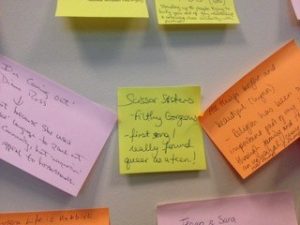 I’ve been listening to Hamilton for months and it’s struck me: popular music can be a powerful way of redefining ourselves, our identities and histories. My workshop explored this from a queer perspective. We discussed ‘queer icons’ and how certain tracks or songs define our identities. The themes of confidence and performance kept coming up, but also the outsider perspective that so many queer icons present in their music. We asked how queer icons unsettle more mainstream ideas of gay icons, and how this translates into musical form? For some of us, it was four-on-the-floor beats and glossy electronic pop; for others, the defiant, grungy guitar sounds of punk; and to my delight, Hamilton’s playful fusion of rap, hip-hop and Broadway came up too! It’s sparked a project for me on identities in the contemporary German techno scene, so watch this space!
I’ve been listening to Hamilton for months and it’s struck me: popular music can be a powerful way of redefining ourselves, our identities and histories. My workshop explored this from a queer perspective. We discussed ‘queer icons’ and how certain tracks or songs define our identities. The themes of confidence and performance kept coming up, but also the outsider perspective that so many queer icons present in their music. We asked how queer icons unsettle more mainstream ideas of gay icons, and how this translates into musical form? For some of us, it was four-on-the-floor beats and glossy electronic pop; for others, the defiant, grungy guitar sounds of punk; and to my delight, Hamilton’s playful fusion of rap, hip-hop and Broadway came up too! It’s sparked a project for me on identities in the contemporary German techno scene, so watch this space!
Monalesia Earle:
The great thing about the Sexuality in Popular Culture event was being able to talk about comics. I mean, 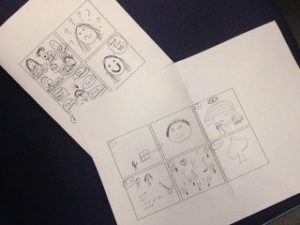 who in their right mind doesn’t think comics can change the world, or at least how we look at it? I enjoyed the chance to get delegates to draw a comic strip of themselves in ways that would challenge popular (and often stereotyped) notions of who they are. Some people framed (no pun intended) their sexuality in the context of ethnicity, race, spirituality, beliefs about the larger world in which they live, and also in terms of the increasingly conservative politics that threaten our basic freedoms. There was a lot of creativity in the drawings that I saw from the delegates, which made me smile and has given me plenty of new trope-busting ideas!
who in their right mind doesn’t think comics can change the world, or at least how we look at it? I enjoyed the chance to get delegates to draw a comic strip of themselves in ways that would challenge popular (and often stereotyped) notions of who they are. Some people framed (no pun intended) their sexuality in the context of ethnicity, race, spirituality, beliefs about the larger world in which they live, and also in terms of the increasingly conservative politics that threaten our basic freedoms. There was a lot of creativity in the drawings that I saw from the delegates, which made me smile and has given me plenty of new trope-busting ideas!
We ended the afternoon with drinks to the strains of our playlist from Tom’s event, drawing our own comics under Monalesia’s expert guidance. It was great to welcome so many undergraduates, postgraduates and researchers to Senate House for the event, and even better that we ended up chatting, debating and discussing each other’s views. Lectures and seminars are all very well, but we all found this sort of collaborative exchange of ideas much more productive for our work (and fantastic fun into the bargain!). Thanks to the IMLR and the SAS for their support, and here’s hoping we can bring more pop culture events to Senate House in the near future! For now, though, how about checking out our playlist from the event.
Ina Linge (Cambridge) @DrInaLinge
Tom Smith (Newcastle) – @TomSmithGerman
Monalesia Earle (London)

